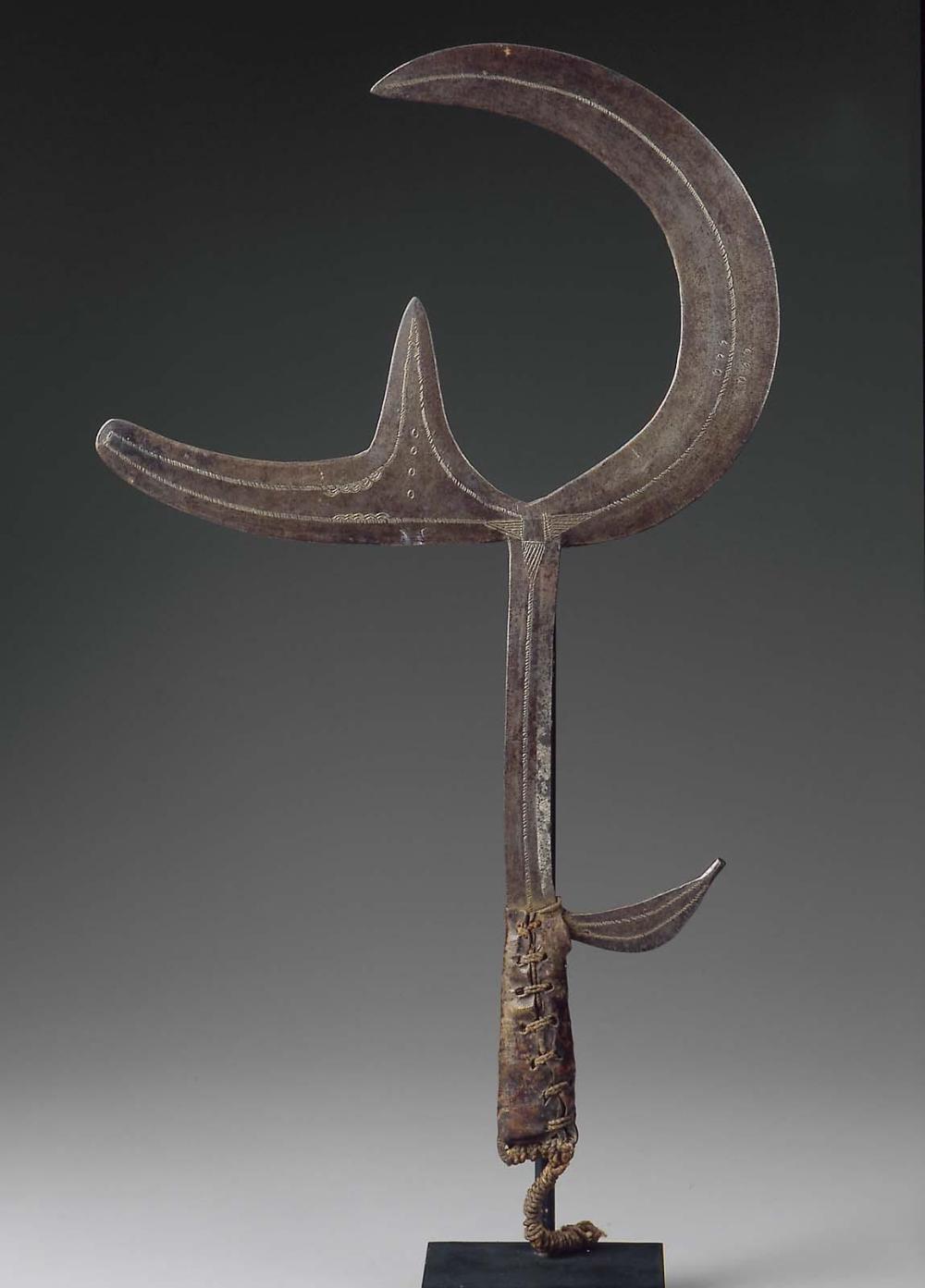Advanced Search 

Throwing knife (bwambwa)
Ngombe
20th century
Object Place: Democratic Republic of the Congo
Medium/Technique
Iron, leather, fiber
Dimensions
Overall: 54.6 cm (21 1/2 in.)
Credit Line
Bequest of William E. Teel
Accession Number2014.289
CollectionsAfrica and Oceania
ClassificationsMetalwork
The design of this throwing knife, most likely produced by a Ngombe smith, is derived from a knife known as za, which was invented by Ngbaka smiths. The Ngbaka cultural hero Seto carried a knife of this style, and referred to this type as the "wife" of another of Ngbaka blade, the za sali, who was the husband.
Ngombe throwing knives took an expert blacksmith several days to produce, and were expensive. While they could be effectively thrown as weapons, they were too valuable to be thrown unless the owner could be sure to recover the weapon. The knives were primarily used as presitious accessories. Known as ngwolo or bwambwa, this weapon type was mainly carried by village heads, lineage elders, and other notables as a symbol of their rank. A knife like this one would be worn as part of a high-ranking man's ensemble when attnding important funerals, used in ceremonies marking a young man's transition to adulthood. During the period of Belgian occupation of the Congo, such knives were carried by police officers to assert their authority.
Ngombe throwing knives took an expert blacksmith several days to produce, and were expensive. While they could be effectively thrown as weapons, they were too valuable to be thrown unless the owner could be sure to recover the weapon. The knives were primarily used as presitious accessories. Known as ngwolo or bwambwa, this weapon type was mainly carried by village heads, lineage elders, and other notables as a symbol of their rank. A knife like this one would be worn as part of a high-ranking man's ensemble when attnding important funerals, used in ceremonies marking a young man's transition to adulthood. During the period of Belgian occupation of the Congo, such knives were carried by police officers to assert their authority.
ProvenanceBy 1991, Marc Leo Felix (dealer), Brussels; December, 1992, sold by Felix to William and Bertha Teel, Marblehead, MA; 2014, bequest of William Teel to the MFA. (Accession Date: February 26, 2014)
